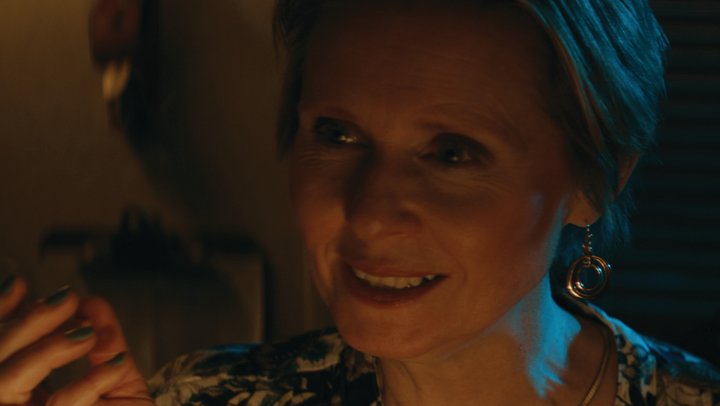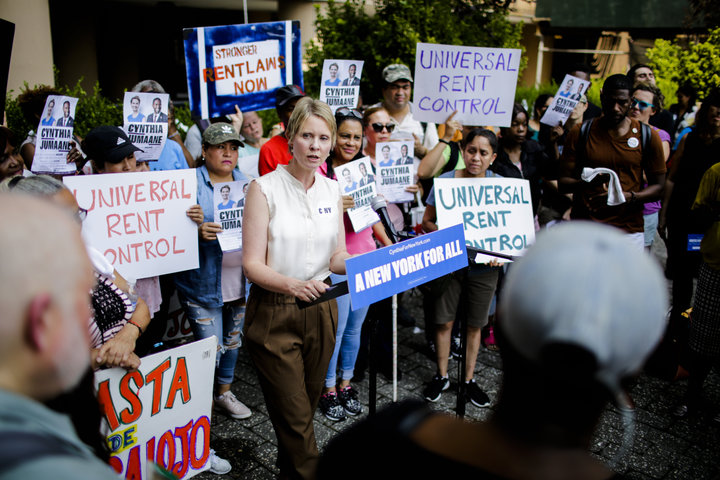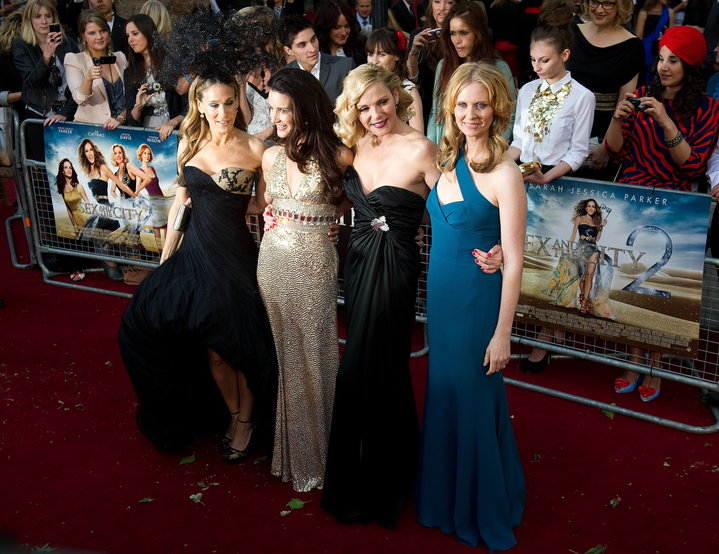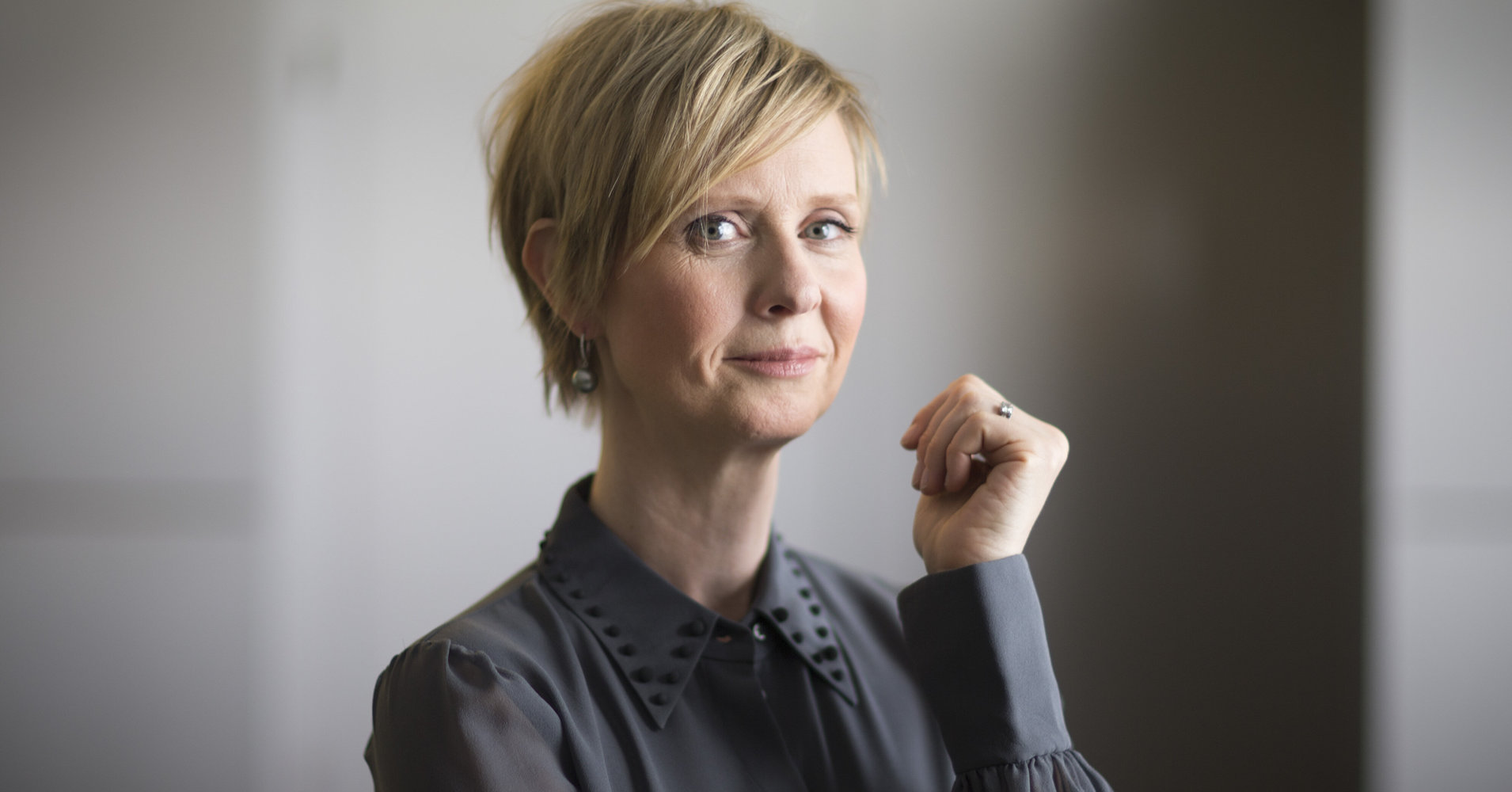[ad_1]
Six months ago, Cynthia Nixon was holding rallies across New York, greeted by cheering crowds hungry to hear what her potential gubernatorial stint would do for the state’s criminal justice system. Now she’s walking red carpets again, likelier to be asked whether “Sex and the City 3” will ever get a green light.
Nixon insists it’s not that jarring a transition. “I’ve been doing this for 40 years,” she says, referring to her acting career, which began with an after-school special in 1979. “It feels really comfortable.”
We are nestled in a room at the Tribeca Film Festival, where “Stray Dolls,” a movie Nixon shot before running for governor, premiered over the weekend. Nixon has appeared at various events since losing the Democratic nomination to Andrew Cuomo in September, but this marks an official return to the field that made her famous and lent her campaign national momentum.
“It’s very hard to go against such a powerful incumbent,” she said. “That’s one of the things that gave me the ability to do it: If I did not get elected, I could pretty much go back to my life. That enabled me to go out on a limb the way a lot of people who might’ve wanted to do what I did didn’t feel like they could.”

After her candidacy came to an end, Nixon took a breather ― barely. She started reading scripts again, something she hadn’t done in several months. Around Christmastime, she accepted her first new acting role: a supporting part in “Ratched,” Ryan Murphy’s Netflix series starring Sarah Paulson as the nurse from Ken Kesey’s “One Flew Over the Cuckoo’s Nest.” She’s shooting the series in Los Angeles now.
It can’t hurt that Nixon’s reassimilation into the pop-culture sphere aligns with a film that predated her political bid. She gets to pick up right where she left off. But electioneering clearly seeped into her bloodstream. When discussing some of the real-world issues addressed in “Stray Dolls” ― immigration, female incarceration rates, Me Too ― she lapses into rhetoric, citing statistics and waxing passionately the way a politician would. Even with an audience of one, Nixon seems one pause away from a smiley “Vote for me!”
For what it’s worth, Nixon is taking inspiration from a worthy source: Glenda Jackson, her co-star in a 1989 production of “Who’s Afraid of Virginia Woolf?” After four decades of acting, including two Academy Awards, Jackson was elected to the British Parliament, aiming to combat the aftereffects of Prime Minister Margaret Thatcher’s administration, much the way Nixon sought to oppose Gov. Cuomo’s eight-year tenure. Jackson returned to performing in 2016 with the authoritative title role in “King Lear,” which has since moved from London to Broadway.

“That’s huge,” Nixon said. “And it’s not like she ever did a lot of Shakespeare to begin with. But what was really interesting is what I heard from people I know who were in that production. What was incredible was, in Parliament, you really have to think and talk on your feet. So she maintained that verbal ability of speaking complicated language and conveying complicated thought and swaying a crowd. But apparently what she had to relearn was what it’s like to be in a community of actors that love you and support you and, if something goes wrong, rush in there and help you. Because in the world of politics, everybody is looking to stab you in the back.”
Even if Nixon spent only a year and half away from her thespian craft, the “Ratched” set is her “King Lear.” It took a “few days or a few weeks” to feel comfortable with her surroundings, but the experience helped her realize how much more “interesting” material has gotten as she’s aged ― roles such as Emily Dickinson in “A Quiet Passion,” a dying mother in “James White,” two different parts in Broadway’s “The Little Foxes” and now “Stray Dolls,” in which she portrays a self-serving motel manager whose clientele includes young immigrants seeking the proverbial American dream.
“That’s part of women getting equal time, that we don’t just tell stories about how terrific women are and what great citizens they are,” she says. “We allow them the permission to fuck up and say, ‘That’s still an interesting person that I, on some level, admire.’”
“Ratched,” set right after World War II, explores that dynamic from a somewhat historical vantage. “Women were given all this power during the war, and then it was just completely, unceremoniously grabbed back,” Nixon says. “What does that feel like? It’s not at all the same moment that we’re in right now, but it’s women knowing that there is a lot more power out there, that they should be holding the reins.”

I get the sense that Nixon is more or less done reflecting on her campaign, having already spent plenty of time convincing the public she wasn’t running simply to push Cuomo’s policies on marijuana legalization and criminal justice reform further left. Aside from an excuse to praise her “incredible volunteers,” most of the questions I ask about politics yield short, to-the-point answers. How does she assess the way the media treated her crusade? “I think the average person on the street took me a lot more seriously than the average reporter covering me, I’ll put it that way.” What doe she make of Cuomo endorsing Joe Biden for president instead of Sen. Kirsten Gillibrand of New York? “I think it’s right on message for him.”
Nixon, who has continued to advocate for education and LGBTQ rights but does not plan to run again, says she hasn’t considered that many offers for film and TV endeavors since September, especially since she’ll be shooting “Ratched” until June. She’s now starting to look for projects to take on after that ends, perhaps buying her a little more time before the masses resume their “Sex and the City 3” pleas.
“I’ve been flying a lot of places in the last few months, much more than I usually do,” she said. “I’m amazed at how everybody seems to know that I ran. So many people say, ‘I would have totally voted for you if I lived in New York.’ It’s so nice. It’s so incredible.”
[ad_2]
Source link

